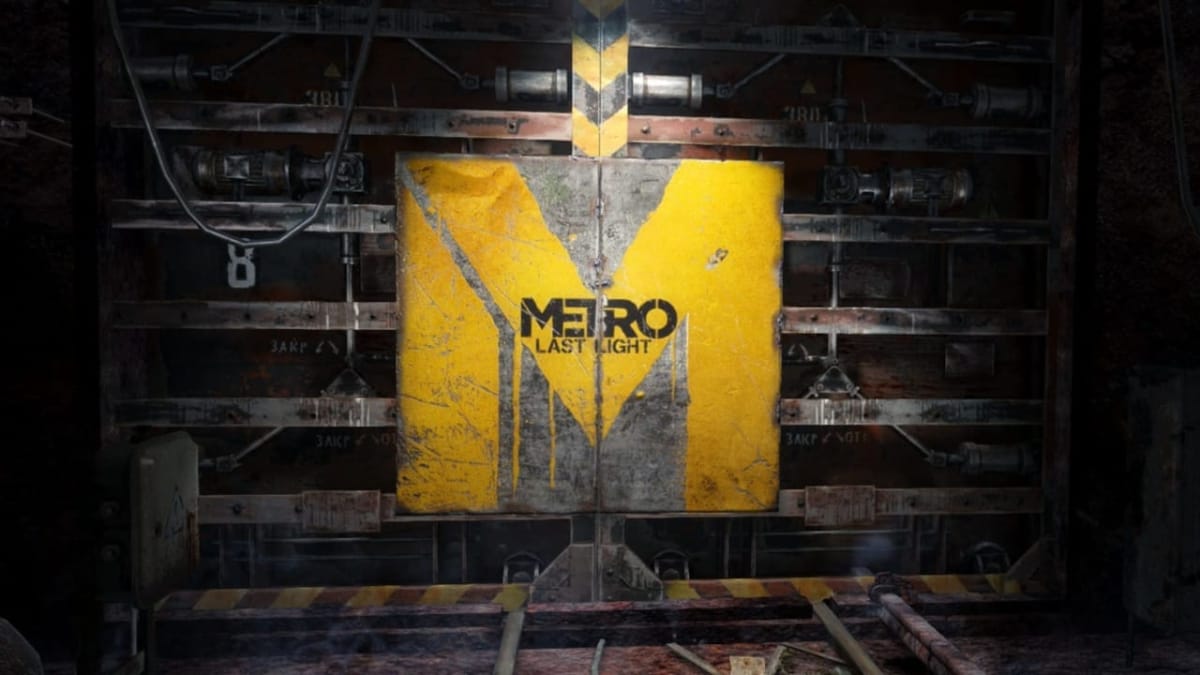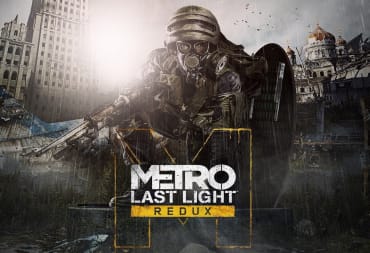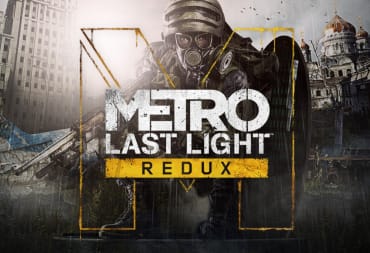Roughly five years ago, Metro: Last Light was released to the world. This sequel to Metro 2033 boasted a number of improvements to its predecessor, including an upgraded engine, a greater exploration of the Moscow Metro, and a heck of a lot more toys to play with. Later DLC added in bonus side missions and challenge content for players to check out. It was (in nearly every sense) an improvement on the original. Today we'll be looking back at how the two games compared and where the Metro series will be headed in the future.

Ghosts In The Metro
One of the first notable differences between Metro: Last Light and Metro 2033 is a subtle shift in tone. The first game had heavy spiritual undertones to the whole thing. The haunting Dark Ones don't factor into the plot in Last Light through visions in the same way that they did in 2033. Mysterious spiritual figure Khan is less a creepy mystic who emerges from the shadows and more an old friend who is keen to help you with your quest. Gone are the hallucinations where walking down the wrong tunnel meant a certain death.The tunnels of the Metro are still plenty spooky all on their own, but you're not as likely to see some kind of otherworldly phenomena as you would have in the previous title. You're more likely to run into bandits or mutants than you are to see something out of the X-Files. Danger is still ever-present, but this time it's more tangible monsters rather than imaginary ones.
In a way, Metro: Last Light could be argued to be a less scary game. It's still very challenging and there's plenty of things that will frighten you, but it's not the sort of ethereal, otherworldly horror that you might see in a Silent Hill game. No, Metro: Last Light shifted more towards a sort of Resident Evil direction where the terrible monsters you'll be facing are either horrifying mutants or regular people who have lost anything good about them a long time ago.

Guns, Guns, Guns
The arsenal of Metro: Last Light built on that of the first game and added a whole lot more. 2033 has one pistol and Last Light has two. The three shotguns from the first game have been expanded into six in the second title.This increase in weapon variety gives players a hell of a lot more options for how they want to play the game, but the addition of an attachment system mixed things up even more. Guns in Metro 2033 could be found with attachments already on them (and were rightly prized by players for the advantage they offered), but you had no way of changing them out yourself.
Metro: Last Light changed that dynamic entirely. Finally, players were able to customize their weapons by using their Military Grade Rounds for suppressors, scopes, laser sights, extended barrels, and all sorts of interesting kit to get their gun working just exactly how they like it. This system was smartly ported to Metro 2033: Redux, something that arguably changed the playing field for players.
Those who enjoy sniping have a bit more on offer, too. While the first game's idea of a sniper rifle was a revolver with a really long barrel, Metro: Last Light has a few different choices for honest-to-goodness sniper rifles. More importantly, the levels are somewhat less claustrophobic and one actually gets the opportunity to make good use of them rather than eating up a weapon slot with a gun that you so very rarely get to bring out for good reason. Best of all, a gun range in the Developer Pack DLC let you experiment with all of the various weapons and their attachments to your heart's content.
Rangers Lead The Way
The Rangers of the Metro are a stealth-oriented force of hardened soldiers, many of whom served in the military before the collapse of civilization. They align themselves with Polis and generally stay out of the conflict between the Reds (Communists) and Reich (Nazis), electing to patrol the tunnels in search of bandits, mutants, and lost technology.The first bit of Metro 2033 had you trying to take a message to friendly Rangers after your home station is attacked. After the conclusion of the first game's events, Metro: Last Light has Artyom serving with the Rangers as a full-fledged member. His rapid advancement in the organization is viewed by some recruits with some level of disdain; after all, he didn't have to endure months or years of training to earn his stripes. Then again, he kinda did save his own little corner of the world through sheer grit and determination. Whatever Artyom faced in the tunnels and topside in 2033 is surely just as harsh (if not more so) than a couple of years of training by the Rangers.
What was once an organization that had a few scattered bases is now a veritable powerhouse in its own right with a dedicated home station that previously served as a military installation. Of all the factions seen in the Metro universe, the Rangers were probably the best people to take command of D6. The Reds or Reich would have surely used the weapons of war to push their advantage, Hansa would have likely sold them, and any bandit factions would have probably let the valuable technology fall into disrepair (if they didn't blow themselves up trying to figure out how to use it).
Starting from an established, well-equipped military base makes for a much different experience than waltzing out of your home station with a piddly revolver as you did in Metro 2033. You have your choice of weapons from the vast Ranger arsenal and you have plenty of time to try them out and see what works for you. Since you're a working member of the organization, you also get a salary paid out that will surely be helpful in keeping you supplied out in the field. Metro: Last Light begins and ends with the Rangers; rather than being just a portion of the plot, they are front and center.
Commies & Nazis
A big portion of the game was the expansion of the conflict between the Reich and Reds. Metro 2033 had you weaving between the front lines of battle between these two equally horrible organizations, but Metro: Last Light has you visiting stations that are firmly in control of the bad guys. Although your time in each of these locations is comparatively short, it does a fantastic job of worldbuilding that just wasn't touched upon in the first game. In both cases, you get a glimpse of how hardship can lead people towards adopting terrible ideologies.A good story needs an antagonist, and the dark ones are no longer your primary concern. This time around, it is both the Reds and Reich who worry the Rangers. After all, either of these organizations are the only military forces with enough clout and firepower to dare attempt an assault on D6 and claim the weapons inside. Either of them ending up with this arsenal would be, suffice to say, very bad for the whole of the Metro.
As you experience each of these factions during the course of the game, you see two different sides of the same coin. Both sides are engaged in a brutal war that has lasted for a long time. The soldiers are hungry, tired, and in many ways they're ill-equipped. The one thing they have in common is the order to kill the enemy, but why they do it and their ultimate goals are the factors that separate them.
Exodus
At the conclusion of Metro: Last Light, you've come to the end of a brutal battle between the Rangers and the Reds. If you've played your cards right, you'll just barely manage to avoid blowing up the massive military arsenal in an effort to protect D6 from falling into the wrong hands. This leads us to Metro: Exodus, the upcoming third game in the Metro series that's set to release sometime later in 2018.Metro: Exodus, much like Metro: Last Light, is setting the stage for a number of improvements to the franchise. I would put good money on the fact that the developers could have made another adventure where the player runs around the Moscow Metro and explores unseen areas and it would still sell like hotcakes, but that's not what they're going to do. For the first time in the series' history, Artyom (and quite a few of his friends) are going to be leaving Moscow entirely.
That's not to say you'll be leaving civilization behind. In a way, you'll be taking it with you, as Arytom and a small band of survivors will be traveling away from Moscow on an absolutely massive train. The gameplay will still be in a somewhat linear fashion, but players will have a lot more room to explore at each stop the train makes. I had hoped for a pure open-world Metro experience and Metro: Exodus seems to be delivering it in part.
All of the systems we've seen in Last Light and 2033 will be expanded upon. The weapon attachment system is being expanded into a weapon crafting system. Levels with multiple alternate routes are being changed into full-blown open-world areas that you can explore at your leisure. The various factions of the underground tunnels, interesting as they are, will be supplanted with new settlements filled with both friendly and not-so-friendly humans that you've never seen before. It's a bit of a risk on the part of 4A Games, but they seem to be executing it brilliantly.
Perhaps the one thing that excites me the most is how they will be handling the morality system. Metro 2033 and Metro: Last Light have a somewhat unintuitive morality system where players have to trigger certain events and avoid certain actions in order to accumulate a high enough score to get the "good" ending. Without thorough exploration or a guide to hand, it's a very difficult task. Worse, players won't see the payoff until the end of the game. Metro: Exodus promises to make that train full of people into something that will suffer the consequences of your actions as time goes on, right then and there.
Metro 2033 was a good game when it released, but it had a number of glaring issues. The weapons system was a bit limiting. The engine was a hungry beast that required a powerful computer to run well. (My first experience with 2033 was tantamount to watching a Powerpoint slideshow of screenshots!) The world had a laser focus on a tiny portion of the underground world where humanity still lives. Metro: Last Light took those themes and built on them, and Metro: Exodus looks to be doing the same thing yet again. Hopefully, I'll be looking back on it in the same way.
What did you think of Metro: Last Light? Do you think it was an improvement to Metro 2033 or did it lose something along the way? What do you hope to see in Metro: Exodus? Let us know in the comments below!
Have a tip, or want to point out something we missed? Leave a Comment or e-mail us at tips@techraptor.net











